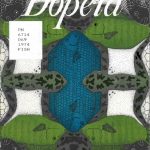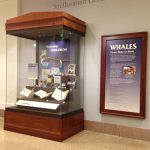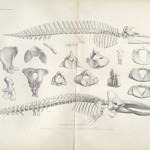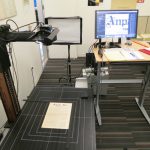 The Biodiversity Heritage Library received the Charles Robert Long Award of Extraordinary Merit from the Council on Botanical and Horticultural Libraries (CBHL) on May 9. It is the highest honor bestowed by CBHL and was founded to honor outstanding contribution and meritorious service to the CBHL or in the field of botanical and horticultural libraries or literature.
The Biodiversity Heritage Library received the Charles Robert Long Award of Extraordinary Merit from the Council on Botanical and Horticultural Libraries (CBHL) on May 9. It is the highest honor bestowed by CBHL and was founded to honor outstanding contribution and meritorious service to the CBHL or in the field of botanical and horticultural libraries or literature.
Category: Natural and Physical Sciences
 Quite often scientists are pegged as a very studious and serious group of individuals. In order for serious scientific research to be developed, nurtured and shared, this is a valid assumption. And scientists are very serious about their journals; either as a vehicle for getting their original research out to fellow scientists or in consulting other published material in their discipline (or other disciplines). However, every great now and then you come across evidence of some not-so-serious ‘published’ work that shows an irreverent, tongue-in-cheek side to scientists. I would like to share some examples I found in the Smithsonian Libraries Vertebrate Zoology collections.
Quite often scientists are pegged as a very studious and serious group of individuals. In order for serious scientific research to be developed, nurtured and shared, this is a valid assumption. And scientists are very serious about their journals; either as a vehicle for getting their original research out to fellow scientists or in consulting other published material in their discipline (or other disciplines). However, every great now and then you come across evidence of some not-so-serious ‘published’ work that shows an irreverent, tongue-in-cheek side to scientists. I would like to share some examples I found in the Smithsonian Libraries Vertebrate Zoology collections.
 We’re excited about our new exhibit, “Whales: From Bone to Book”! If you’re in the DC area this summer (perhaps for a free, open to the public, whale symposium?), stop by the National Museum of Natural History and take a look. The exhibit is located on the Ground Floor in the Evans Gallery and will be on display until April of 2014.
We’re excited about our new exhibit, “Whales: From Bone to Book”! If you’re in the DC area this summer (perhaps for a free, open to the public, whale symposium?), stop by the National Museum of Natural History and take a look. The exhibit is located on the Ground Floor in the Evans Gallery and will be on display until April of 2014.
 The Biodiversity Heritage Library for Africa (BHL-Africa) officially launched during a ceremony hosted by the South African National Biodiversity Institute (SANBI) at the Pretoria National Botanical Garden in Pretoria, South Africa on April 15.
The Biodiversity Heritage Library for Africa (BHL-Africa) officially launched during a ceremony hosted by the South African National Biodiversity Institute (SANBI) at the Pretoria National Botanical Garden in Pretoria, South Africa on April 15.

The Smithsonian Libraries opens its new exhibition “Whales: From Bone to Book” in the Smithsonian’s National Museum of Natural History May 25. This exhibition is a collaboration between the Libraries and the museum’s Department of Paleobiology. “Bone to Book” will be on display through April 2014.

This post was contributed by Ann Juneau, Department Head, National Museum of Natural History Library.
A determined need to know more about their heritage and history is what drove the Shakopee Mdewakanton Sioux Community in Minnesota to want to digitize two newspapers of their ancestors in the Dakotas. First contacting the American Indian Studies Research Institute at Indiana University, The Community began their quest. The communique for assistance then went on to a Smithsonian Institution emeritus anthropologist, and close colleague of the Institute’s director, and the kinetic energy was established.

